Filter by

Fibula, fabula, fact
"The chapters of Fibula, Fabula, Fact – The Viking Age in Finland are intended to provide essential foundations for approaching the important topic of the Viking Age in Finland. These chapters are oriented to provide introductions to the sources, methods and perspectives of diverse disciplines in a way that is accessible to specialists from other fields, specialists from outside Finland, and …
- Edition
- -
- ISBN/ISSN
- 9789522227645
- Collation
- 519 p.; 23 cm.
- Series Title
- Studia Fennica Historica
- Call Number
- 930 FIB f
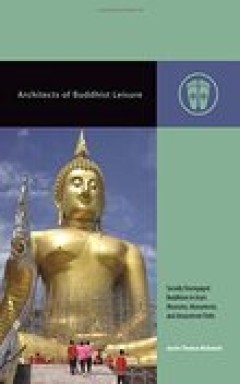
Architects of Buddhist leisure
Buddhism, often described as an austere religion that condemns desire, promotes denial, and idealizes the contemplative life, actually has a thriving leisure culture in Asia. Justin McDaniel looks at the growth of Asia’s culture of Buddhist leisure through a study of architects responsible for monuments, museums, amusement parks, and other sites. In conversation with noted theorists of materi…
- Edition
- -
- ISBN/ISSN
- 9780824865986
- Collation
- xi, 215 p.; 22 cm.
- Series Title
- Contemporary Buddhism
- Call Number
- 155.09 MCD a
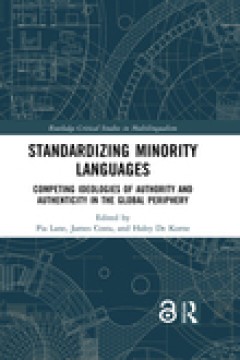
Standardizing minority languages
The Open Access version of this book, available at https://www.taylorfrancis.com/books/9781138125124, has been made available under a Creative Commons Attribution-Non Commercial-No Derivatives 4.0 license. This volume addresses a crucial, yet largely unaddressed dimension of minority language standardization, namely how social actors engage with, support, negotiate, resist and even reject such …
- Edition
- -
- ISBN/ISSN
- 9781315647722
- Collation
- 250 p.; 23 cm.
- Series Title
- -
- Call Number
- 306.4409 STA s

What is literature for?
Along with the theoretical or traditionally historical question “What is literature?”, the critical and political question “What can literature do?” begs an answer. What value do contemporary society and culture ascribe to literature? What utility? What role? “My confidence in the future of literature”, wrote Italo Calvino, consists in the knowledge that there are things that only l…
- Edition
- -
- ISBN/ISSN
- 9782722602755
- Collation
- -
- Series Title
- -
- Call Number
- 840.93 COM w
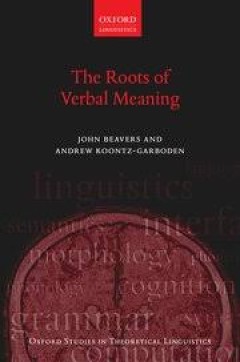
The Roots of verbal meaning
- Edition
- -
- ISBN/ISSN
- 9780198855781
- Collation
- 288 p.; 23 cm.
- Series Title
- -
- Call Number
- 412.09 BEA r
- Edition
- -
- ISBN/ISSN
- 9780198855781
- Collation
- 288 p.; 23 cm.
- Series Title
- -
- Call Number
- 412.09 BEA r

Oral literature in the digital age: archiving orality and connecting with com…
- Edition
- -
- ISBN/ISSN
- 9781909254336
- Collation
- 190 p.; 23 cm.
- Series Title
- -
- Call Number
- 398.2 ORA o
- Edition
- -
- ISBN/ISSN
- 9781909254336
- Collation
- 190 p.; 23 cm.
- Series Title
- -
- Call Number
- 398.2 ORA o
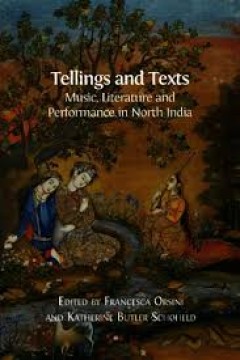
Tellings and texts: music, literature and performance in North India
- Edition
- -
- ISBN/ISSN
- 9781783741052
- Collation
- 566 p.; 23 cm.
- Series Title
- -
- Call Number
- 801.93 TEL t
- Edition
- -
- ISBN/ISSN
- 9781783741052
- Collation
- 566 p.; 23 cm.
- Series Title
- -
- Call Number
- 801.93 TEL t
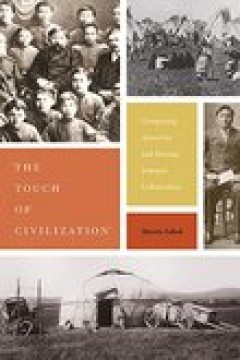
The touch of civilization
This work compares the process and practice of nineteenth-century American and Russian internal colonization, a form of contiguous, continental expansion, imperialism and colonialism that incorporated indigenous lands and peoples. It provides a critical, comparative examination of internal colonization exercised by the United States and Russia and experienced by two indigenous populations, the …
- Edition
- -
- ISBN/ISSN
- 9781607325505
- Collation
- 311p.: ill.
- Series Title
- -
- Call Number
- 909 SAB t

Science as social existence: heidegger and the sociology of scientific knowledge
n this bold and original study, Jeff Kochan constructively combines the sociology of scientific knowledge (SSK) with Martin Heidegger’s early existential conception of science. Kochan shows convincingly that these apparently quite different approaches to science are, in fact, largely compatible, even mutually reinforcing. By combining Heidegger with SSK, Kochan argues, we can explicate, elab…
- Edition
- -
- ISBN/ISSN
- 978-1783744114
- Collation
- 444 p.
- Series Title
- -
- Call Number
- -
 Computer Science, Information & General Works
Computer Science, Information & General Works  Philosophy & Psychology
Philosophy & Psychology  Religion
Religion  Social Sciences
Social Sciences  Language
Language  Pure Science
Pure Science  Applied Sciences
Applied Sciences  Art & Recreation
Art & Recreation  Literature
Literature  History & Geography
History & Geography